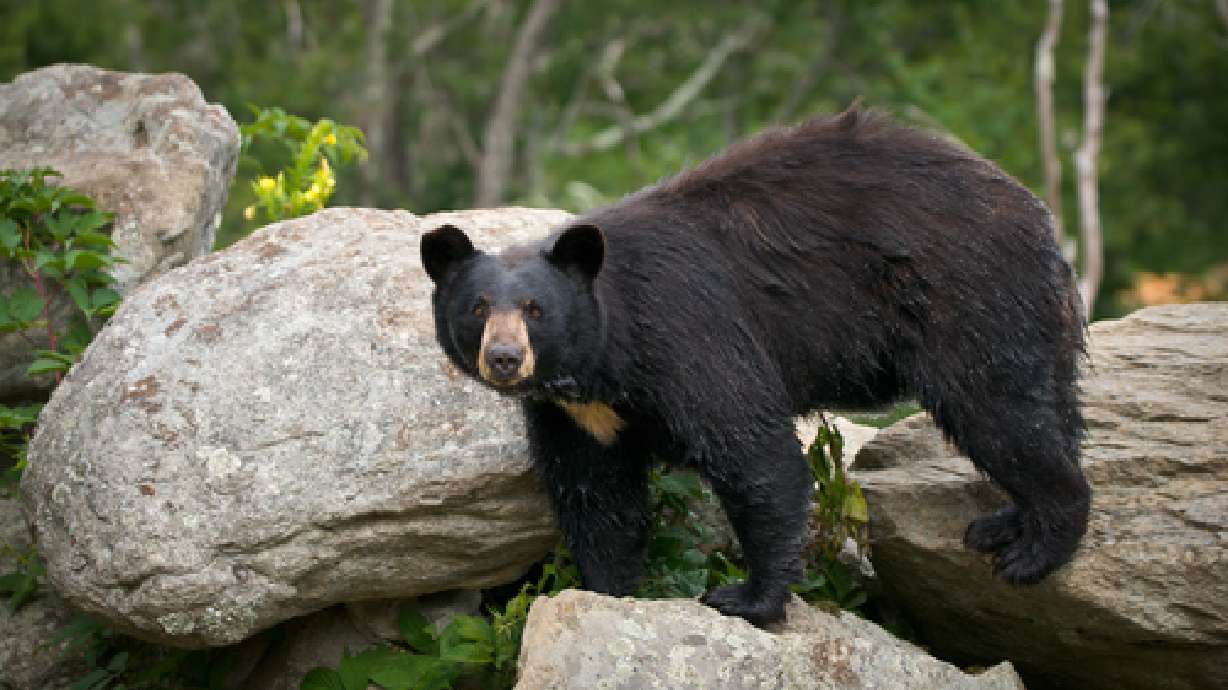Estimated read time: 3-4 minutes
This archived news story is available only for your personal, non-commercial use. Information in the story may be outdated or superseded by additional information. Reading or replaying the story in its archived form does not constitute a republication of the story.
SALT LAKE CITY -- Huge snowpack in the Rockies and Sierra Nevada isn't only raising the specter of serious flooding downstream, but it's sending bears into lower elevations in search of food where encounters with humans could turn deadly.
Bears in Utah have been showing up in recent weeks in places they typically aren't seen, poking around cabins near Strawberry Ridge in the southern part of the state, and wandering through Ogden Canyon up north.
A recent sighting on a state road had Ogden dentist Greg Booth doing a double-take.
"I told my 10-year-old grandson he had seen a big dog," Booth said. "But he was pretty convinced, so I turned around and the bear was still there."
The bears would prefer to be in meadows higher in the mountains right now. But the snow has closed many of those areas off.
–Kevin Bunnell
Utah wildlife officials say bear sightings at lower elevations have been more common because of the heavy snowfall the state received this season. Officials in Nevada are reporting similar bear sightings.
"The bears would prefer to be in meadows higher in the mountains right now," said Kevin Bunnell of the Utah Division of Wildlife Resources. "But the snow has closed many of those areas off."
In Nevada, wildlife officials already have had to euthanize three bears because they became safety risks as they foraged for food around garbage cans. One had been living under a ski school for children, waking up once a week on garbage day to raid the cans. Twenty bears were euthanized in Nevada for public safety reasons last year.
Officials remain hopeful, however, that all the moisture in the mountains might help them avoid a repeat of recent summers when drought, followed either by an early June freeze or hot summer, stunted growth of the nuts and berries that are staples of a bear's diet.
If the natural food isn't there, bears "will go the path of least resistance and visit more garbage cans," said Chris Healy, a spokesman for the Nevada Department of Wildlife.
Related:
Healy said in 2010, Nevada officials trapped 78 bears -- the second-most on record since they handled 158 bears in 2007 when drought, hard freeze and hot summer ruined their natural food source.
"In 2007 we had bears coming into downtown Reno," Healy said. "They'd be searching for food, coming down river corridors, maybe under a full moon ... then suddenly the sun comes up and they're in the middle of town."
Officials in both states say the conditions make it even more important that people refrain from feeding bears.
"A fed bear is a dead bear," said Douglas Messerly of Utah's Division of Wildlife Resources.
He suspects someone is feeding a bear that has been frequenting Strawberry Ridge cabins about 20 miles east of Cedar City.
"Some think it's really neat to come up for the weekend, throw it a watermelon rind and watch a bear eat it," Messerly said, adding that it desensitizes the animal to humans, making it a danger.
A fed bear is a dead bear.
–Douglas Messerly
Officials say feeding bears or leaving garbage out is also a problem around Lake Tahoe with a continuous influx of tourists.
"We have a new population every week and it's been a long haul to try to teach those people that they're putting bears in danger by feeding them garbage or leaving garbage out," Healy said. "It's unfortunate because almost always the bears lose."
Healy said bears will be killed any time they break into homes in search of food, become aggressive toward people or are deemed a safety risk.
A campground near Springville in central Utah was closed for a few days earlier this month while wildlife officials trapped two yearling bears. They were safely released back into the wilderness.
Four years ago, a bear encounter turned tragic when an 11-year-old boy was killed at a U.S. Forest Service campsite in American Fork Canyon. The boy's family recently won a $2 million federal lawsuit.
(Copyright 2011 by The Associated Press. All Rights Reserved.)









